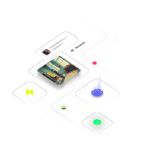Dealing with the challenge of securing machine identities [Q&A]

Machine identities have proliferated in recent years, but while they offer convenience they also introduce new vulnerabilities.
We spoke to Ev Kontsevoy, Teleport CEO, to learm more about the problem of securing machine IDs and what enterprises can do to address it.
Say no thanks to Windows 11 and yes please to SparkyLinux 8, the lightweight OS you deserve

You can’t have failed to be aware that Windows 10 is approaching its end of life, meaning security updates will soon stop.
For users who don’t watch to take risks with their system safety, the obvious next step is a move to Windows 11, but the newly released SparkyLinux 8.0 offers a lightweight, fast, and fully configurable alternative that supports both modern and older hardware.
Magic Research debuts white-label AI that runs in-house for better security

Magic Research has introduced a private, white-label generative AI platform that operates entirely within an organization’s own infrastructure.
The company says the system can cut AI costs by up to 90 percent while keeping sensitive data secure. It gives enterprises full control over their branding, data, and operations without relying on vendor-owned AI services.
CrowdStrike debuts unified identity security for human, non-human, and AI accounts

CrowdStrike has launched Falcon Next-Gen Identity Security, a new unified solution aimed at protecting identity across the full attack chain.
The platform covers human users, non-human service accounts, and AI agent identities, delivering security without the usual integration delays typically seen in multi-vendor setups.
HTC launches VIVE Eagle AI glasses with camera, translation, and voice control -- would you wear them?

HTC has announced VIVE Eagle, a new range AI-powered smart glasses developed in partnership with Taiwan Mobile and 2020EYEhaus.
The new product, which will be sold in Taiwan to begin with, combines voice control, smart photography, and real-time translation in a lightweight frame designed for daily wear.
Apple rolls out a redesigned Blood Oxygen feature to Apple Watch

Some Apple Watch users are about to receive a software update which will provide them with a redesigned Blood Oxygen feature.
The update affects owners of Apple Watch Series 9, Series 10, and Apple Watch Ultra 2 in the US who do not yet have the Blood Oxygen feature. Access to the health tool comes after a US Customs ruling.
Demand for .AI domain names soars along with values

For the second consecutive quarter sales of .AI domain names have surged -- with a quarterly record of $4.5 million in volume in the last quarter (up from $3.48 million in the first quarter of this year) as demand for artificial intelligence-related branding accelerates.
The latest Domain Investment Index from online payments service Escrow.com reflects the embrace of AI. “Two huge tech trends are colliding here: the incredible uptake of AI in business and the realization that domains are the commercial real estate of the Internet,” says Escrow.com chief executive Matt Barrie.
Enterprises struggle with too many identity tools

With identity security growing more complex a new report shows that of 70 percent of enterprises recognize the need to consolidate their identity security tool stack.
The study by Enterprise Strategy Group for Silverfort finds that while 70 percent of teams plan to expand their use of an existing tool to cover a new use case in the next 12-18 months, 62 percent of organizations plan to implement a new tool to satisfy a use case, hinting that current solutions may not be adequate to satisfy evolving priorities.
New Temporary Chats in Gemini stops Google remembering everything
Google has announced new features for Gemini and changes to the way the AI works. In launching a new Temporary Chats function, Google is really sneaking in the fact that Gemini will – unless you choose otherwise – remember everything you have said to it.
The ability of Gemini (which will be the default) to remember all of your past conversations is sold as a way to make it an “even more personal, proactive and powerful assistant”. There are, of course, privacy concerns.
Over 80 percent of organizations knowingly ship vulnerable code

New research shows 81 percent of organizations knowingly ship vulnerable code, and 98 percent experienced a breach stemming from vulnerable code in the past year, that’s a sharp rise from 91 percent in 2024.
The survey from Checkmarx, of more than 1,500 CISOs, AppSec managers and developers around the world, also shows that AI‑generated code is becoming mainstream, but governance is lagging.
ChatGPT now integrates with Gmail, Google Calendar and Contacts

OpenAI has confirmed the rollout of Gmail, Google Calendar, and Google Contacts Connectors in ChatGPT.
Available to Pro and Plus tiers, the connectors come hot on the heels of the recently added Box, Canva, Dropbox, HubSpot, Notion, Microsoft SharePoint, and Microsoft Teams integrations. By granting ChatGPT access to Gmail emails, Calendar entries and Contacts data, the AI should be able to provide more personalized and relevant information.
Microsoft releases PowerToys v0.93.0 with a fresh new look

It is time for a new PowerToys update, and with the release of version 0.93.0 of the utility suite, Microsoft delivers a lot.
As well as fixing bugs and making improvements to a number of the modules, PowerToys v0.93.0 features a new dashboard UX. There are no new modules this time around but there are some impressive performance improvements.
High security savings account promises tighter protection against modern banking scams

A new kind of savings account built to stop fraud before it starts is now available nationwide. Fort Knox Bank’s High-Security Savings Account, developed by Austin Capital Bank, removes passwords entirely and uses biometric identity verification with proprietary Closed-Loop technology to keep criminals out.
The launch comes at a time when U.S. consumers are facing unprecedented levels of financial crime. According to the Federal Trade Commission, losses from fraud hit $12.5 billion in 2024, a 25 percent leap from the year before.
Shifts in federal cyber priorities put stress on security teams

Recent shifts in US federal cybersecurity efforts, most notably cuts to key CISA programs and the disbanding of the Cyber Safety Review Board, are having an impact beyond Washington according to a new report.
Security automation company Swimlane surveyed 500 IT and security decision-makers across the US and UK The findings show how private-sector leaders are now shouldering greater responsibility for resilience, investment and public‑private coordination.
Six newly identified Windows vulnerabilities put Microsoft users at serious risk

Six newly discovered Windows vulnerabilities, including one rated as critical, could crash systems, allow attackers to run malicious code, or expose sensitive data. The flaws were uncovered by Check Point Research and privately reported to Microsoft under a responsible disclosure process.
One of the most notable discoveries involves what is likely the first publicly disclosed bug in a Rust-based Windows kernel component. Rust is often chosen for its ability to prevent memory errors that have historically led to security flaws
Recent Headlines
Most Commented Stories
BetaNews, your source for breaking tech news, reviews, and in-depth reporting since 1998.
© 1998-2025 BetaNews, Inc. All Rights Reserved. About Us - Privacy Policy - Cookie Policy - Sitemap.